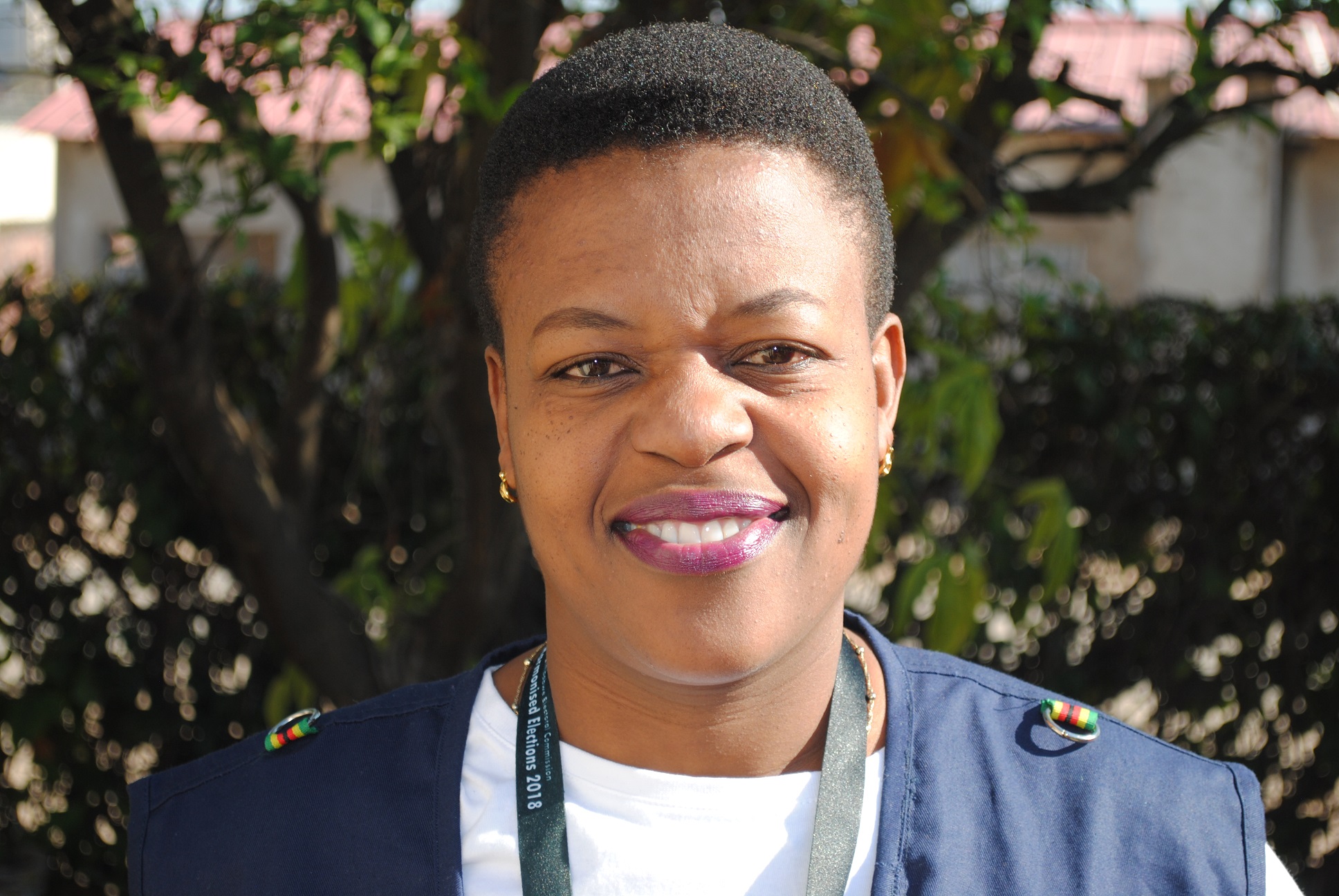العمل الصحفي الحر في زيمبابوي لا يعيش أفضل أيامه، ففضاء الحرية الضئيل الذي كان سائدا قبل أزمة كورونا، تقلّص بشكل كبير أمام الإجراءات التي فرضتها السلطات، إذ أصدرت مفوضية الإعلام في زيمبابوي عام 2020 تصريحاً يسمح للصحفيين بالعمل بالبطاقات الصحفية الصادرة لعام 2019. ولم تمض أربعة أشهر حتى اعتُقل صحفيان على الأقل لاستخدامهما بطاقات منتهية الصلاحية. والآن أجد نفسي أمام سؤال صعب: هل أخاطر بالخروج مستخدمة بطاقتي لعام 2019 أم أبقى في المنزل وأتخلى عن مصدر دخلي؟
يصعب على الصحفي الحر في زيمبابوي في بعض الأحيان تغطية قضايا مثل الاحتجاجات والمظاهرات، وكذلك أخبار الأوبئة مثل وباء فيروس كورونا المستجد، خوفاً من مخاطر الاعتداء والتحرش والمضايقات، وفي كثير من الحالات الاعتقال من قبل الشرطة أو الجيش، وهي مخاطر تدفع الكثير من الصحفيين للتفكير بشكل جدي في ترك المهنة.
نشر المعهد الإعلامي لجنوب أفريقيا (MISA) -وهو مؤسسة تراقب حرية الإعلام- تقريراً يفيد بأن الشرطة الزيمبابوية هاجمت صحفيًّا حرًّا وأجبرته على حذف صوره أثناء فرضهم حظر التجول بسبب "كوفيد 19".
وأفاد المعهد بأن الصحفي الحر بانشي ماكوفا تعرض للضرب من قبل عناصر الشرطة في بلدية كوادزانا بالعاصمة هراري أثناء تأديته لواجباته المهنية.
كما أورد في تقريره أيضا "أن أربعة من عناصر الشرطة أمروا ماكوفا بالصعود إلى سيارتهم، حيث تعرض للاعتداء من قبل ضابطين وأجبر على مسح صوره قبل تركه في حال سبيله".
يصعب على الصحفي أن يتجاوز تجربة مثل هذه، لأنها تلحق به صدمة عنيفة. ويزداد الأمر سوءًا حين يكون الضحية صحفيًّا حرًّا ليس بوسعه الحصول على المساعدة بعد هذه الصدمة الجسدية والنفسية. والدخل الذي نحصل عليه -خصوصا من وسائل الإعلام المحلية التي تنشر تقاريرنا- لا يكفي لحصولنا على تأمين صحي، مما يعني أن المرء قد لا يقدر على الحصول على الرعاية الطبية اللازمة عقب حادثة كهذه.
لذا تظل مشكلة التحرش والمضايقات أحد أهم التحديات التي تواجه الصحفي الحر في زيمبابوي في هذه الآونة.
صراع لأجل البقاء
تسليط الضوء على المشاكل التي يواجهها الناس في حياتهم عبر وسائل الإعلام أمر مثير للغاية. وأن يكون الصحفي حرًّا يعني عدم خضوعه لأي قيود أو إملاءات على ما يكتبه، فما ينتجه هو ما يحدد ما يحصل عليه في نهاية اليوم.
لذا يجب على الصحفي الحر أن يبذل جهدًا إضافيًّا للبقاء والنجاة، والعمل على التقارير التي لا تجذب عادة انتباه وسائل الإعلام السائدة. الاقتصاد الزيمبابوي في حالة سيئة ويعاني من نسب البطالة العالية وارتفاع الأسعار ومعدلات التضخم المتزايدة.
ونتيجة لهذه الظروف الاقتصادية العصيبة التي تمر بها البلاد، تعاني بعض وسائل الإعلام المحلية بالتبعية جراء الضائقة المالية، ما عدا تلك المدعومة من جهات مانحة أو وسائل الإعلام الرسمية.
وفي ظل هذه الصعوبات الاقتصادية، يكون المبلغ المدفوع مقابل التقرير الصحفي من المؤسسات الإعلامية ضئيلا للغاية، لدرجة أنه في نهاية الشهر يجد الصحفي الحر ما يتقاضاه عن عمله قد تلاشى بسبب معدلات التضخم.
تخيّل أن أكثر المؤسسات الإعلامية شعبية في زيمبابوي تدفع 200 بوند (العملة في زيمبابوي هي الدولار الزيمبابوي، فما هذه "بوند"؟؟؟) بحد أقصى للتقرير (ما يعادل 5 دولارات أميركية). كم من تقرير إذن يجب أن ينتجه الصحفي ليحصل على دخل معقول؟ لهذا يعاني كثير من هؤلاء الصحفيين الأمرّين لعيش حياة كريمة.
وللعلم، فإن سعر إيجار غرفة واحدة يتراوح من 20 إلى 40 دولارا أميركيا في الشهر الواحد.
ترسم هذه النقطة صورة لحياة الكفاف التي يعيشها الصحفي الحر في زيمبابوي، الأمر الذي يجعلنا أكثر عرضة للآثار السلبية للأحداث والاضطرابات الطارئة وتبعاتها مثل جائحة "كوفيد 19". فمع غياب شبكات أمان يمكن للصحفي الحر أن يلجأ إليها، وفي مواجهة إجراءات حظر التجول، يمكنك أن تتخيل ما سيحل بهذا الصحفي في زيمبابوي.
تجارب شخصية
وكما بينت سابقا، فإن مضايقات الشرطة أحد أهم التحديات التي نواجهها. أستطيع أن أؤكد شخصيا أني نادرًا ما أغطي المسيرات والمظاهرات، خوفاً من المضايقات. ليس هناك تقرير صحفي يستحق الموت لأجله، فلدي ابنة أعتني بها في نهاية المطاف. بعد تعرض المرء للضرب أو المضايقات، يجد نفسه بحاجة إلى عناية صحية، لكن بسبب نقص المال، قد أفقدها وقد تدفع أسرتي الثمن أيضاً.
والتحدي الآخر الذي يواجهني شخصيا هو الفشل في الحصول على تعليقات وردود بعض المسؤولين الحكوميين، خصوصا إذا كنت تعمل صحفيًّا حرًّا أو لدى وسائل إعلام خاصة. تخيّل أنك تعمل على تقرير يعوزه تعليق من مسؤول حكومي ليصبح قابلا للنشر، ولكن لأنك صحفي حر موصوم عادة بأنه "مخبر" ضد الدولة، فقد تعجز عن الحصول على هذا التعليق، وهذا أمر محبط للغاية.
وقد عرجت بالفعل على حقيقة أن الصحفي الحر يقبض ثمن كل تقرير ينتجه. وفي بعض الحالات يساهم الصحفي في المحتوى، لكن لأسباب عدة تُعرض المؤسسة الإعلامية عن سداد المقابل، ولا يبقى أمامك خيار سوى تجاهل الأمر، ليس لأنك لا تحتاج المال، بل لأنك تأمل أن يستمروا في قبول تقاريرك وإسهاماتك وأن يظل اسمك متداولا ومرئيا في الأوساط الإعلامية. وفي بعض الحالات قد يُسرق تقريرك.
تكلفة تشغيل الإنترنت عبر الهاتف في زيمبابوي هي من بين الأعلى في أفريقيا، وتصبح تكلفة اتصال الإنترنت تحديا في حد ذاته في بعض الأوقات. ينتهك هذا الأمر حق المواطن في الوصول إلى المعلومات، وهو حق منصوص عليه في الدستور الزيمبابوي وفي الإعلان الأفريقي لحقوق الإنترنت.







































